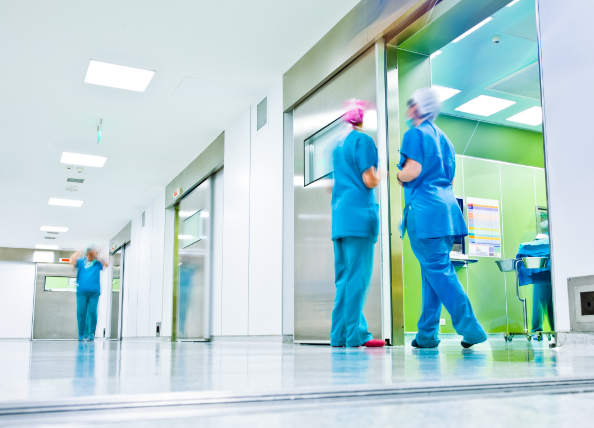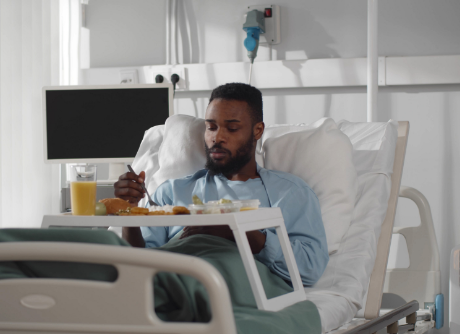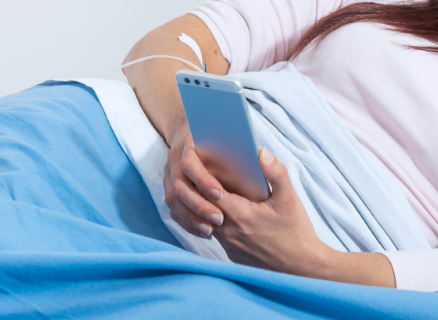Making healthcare more sustainable
The NHS accounts for 25% of public sector carbon dioxide emissions in the UK.
This sets the precedent for a change in how the NHS works to improve environmental impact and the goal to be carbon neutral by 2040.


Carbon-neutral healthcare
According to the World Economic Forum, over 4% of global CO₂ emissions are produced by healthcare systems and directly impact patient health.
Climate change increases the risk of illness and can affect the body’s nervous and respiratory systems.
Reduce the risk by implementing more sustainable healthcare.
Where SPARK® TSL can help…
Our latest Bedside Unit technology, SPARK® Media BSU can help your Trust achieve sustainability.
Help us to improve SPARK® Media to digitise processes like prescribing and meal ordering to further reduce waiting times, bed blocking, and unnecessary clinical and food waste.

Paperless meal ordering
Every hospital in the UK was recommended to implement a digital meal ordering system by 2022. These systems aim to replace paper-based meal ordering, cut costs, reduce food waste and enhance patient satisfaction.
Switching from paper to digital meal ordering services can save around 237,250 sheets of paper annually.
We’re developing SPARK® Media to make this possible by allowing patients to easily access digital meal ordering services on their own devices.


12%
of the total food waste generated in the UK comes from the NHS and private hospitals.

Trusts can also upgrade to SPARK® Media BSU and use existing Hospedia Bedside Units to make it easier for patients to access meal ordering.
More than 6,000 tonnes of hospital food was thrown away by NHS England in 2020 and the annual cost of hospital food waste is £230 million, according to official statistics.
Giving patients control over their food intake means they are less likely to waste food, as well as providing staff with an opportunity to address and prevent malnutrition risks.
Going digital and linking a meal to a patient means that if they move beds or wards, their meal will be actioned accordingly — whether that’s a cancellation or redirection, depending on the situation.

Utilising digitalisation in the NHS
Not every patient will want to watch programmes or play games on devices, so is there still a need for digital devices?
In short, yes. Not only does SPARK® Media allow patients to access entertainment and games, but they also hold an extensive library of reading materials. Trusts can save up to 99.9% of the cost of paper copies of magazines and newspapers.
Healthcare information is also available on devices, allowing patients to understand their conditions further without needing a doctor to explain.

Join the mission to digitise meal ordering services to help Trusts save up to £262,900 annually
E-Prescribing can also impact huge savings for Trusts and reduce paper usage and waste
Moving translation services to an online resource will save Trusts money on translators
Clinical messaging can also speed up the care process, which speeds up the discharge process
Join a community working towards the digital transformation of healthcare
See all events


